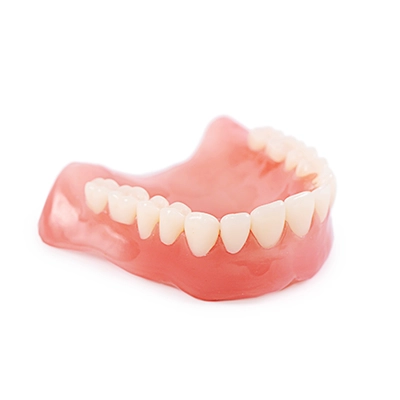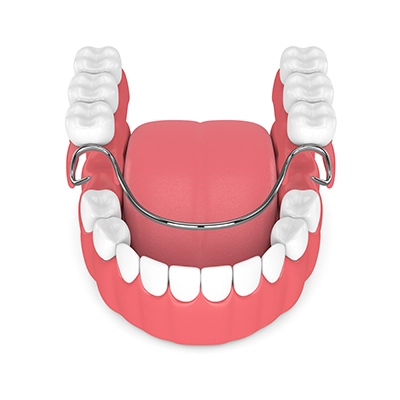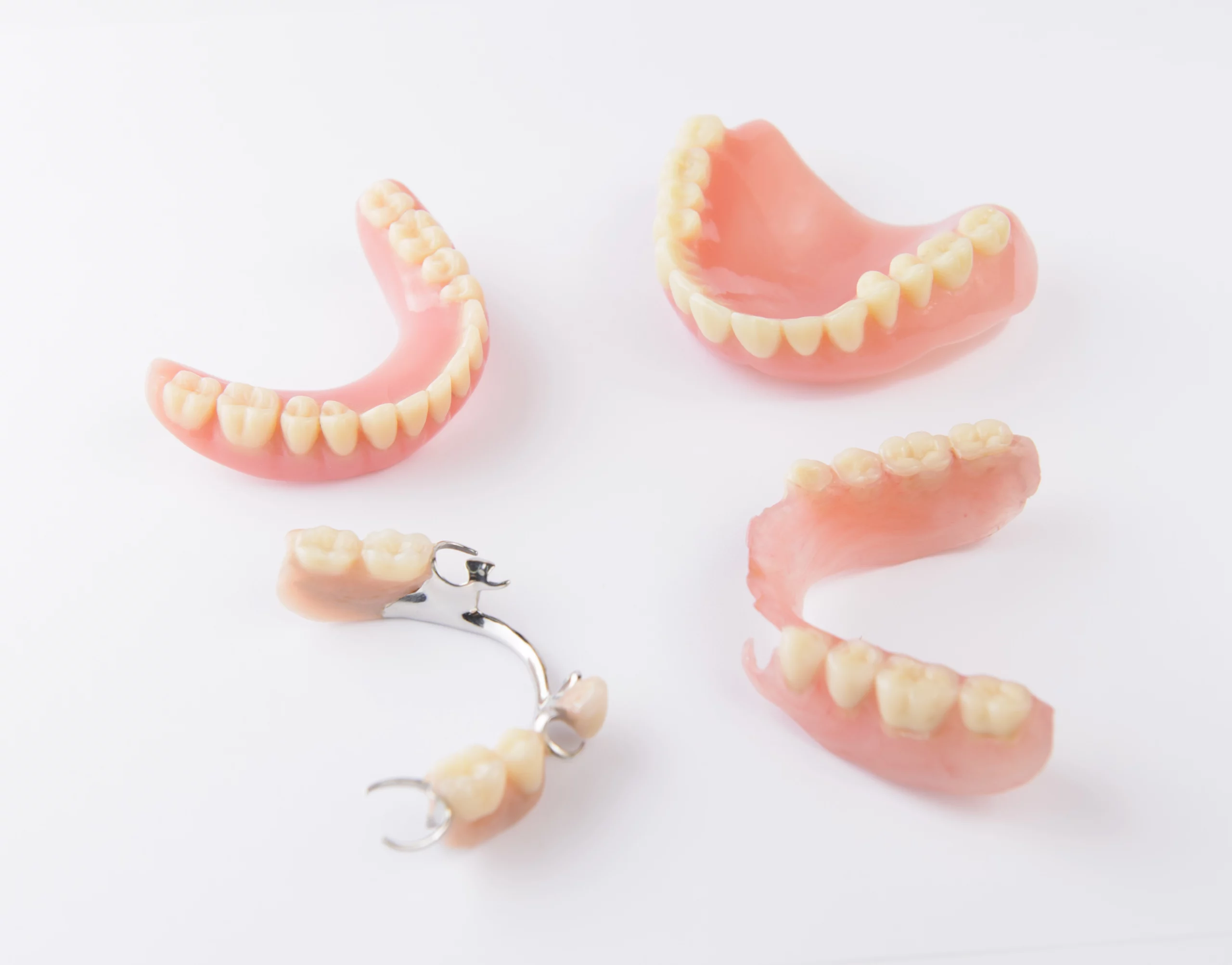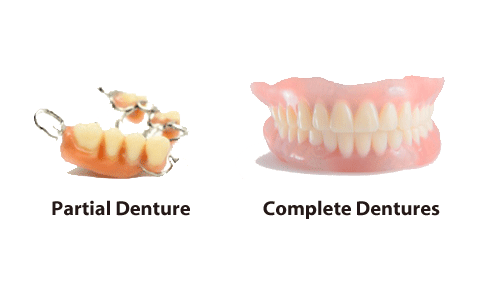According to experts, approximately 35 million people in the United States suffer from edentulism, which means they are missing some or all of their teeth. This condition can be caused by a variety of issues including lifestyle habits, poor oral hygiene habits, lack of access to dental care, genetics, and more. Research shows that 90% of them wear partial or complete dentures to replace their missing teeth.
Dentures are just one of the restorative dental procedures that we specialize in at Prime Family Dentistry. In this article, we’ll explain what you need to know about dentures.


Why Should You Consider Dentures?
If you are missing one or more teeth, you may be at an increased risk of additional issues including:
Additional tooth loss and other dental issues
Reduced self-esteem
Jawbone deterioration
Difficulty chewing and swallowing
Dietary issues/malnutrition
Shifting of neighboring teeth, altering your bite
Therefore, replacing missing teeth is critical. One of the most popular ways that patients at Prime Family Dentistry replace their missing teeth is with dentures. This tooth restoration procedure offers several benefits including:
Restores your smile
Improves confidence
Prevents additional dental issues
Protects/improves facial shape
Easy to maintain/clean
Custom made for your mouth
Restores chewing and speaking abilit
Affordable
4 Types of Dentures
There are several types of dentures available, based on your needs:
Complete Dentures
Typically, we will strive to save as many of your natural teeth as possible. Unfortunately, in some cases, we are unable to do so. This is when you would need complete, or full, dentures. This type of denture is designed to replace an entire arch of missing teeth.
Traditional dentures are typically made of acrylic and are supported by your gums and jawbone. Since they are not anchored into the bone like natural teeth or dental implants, dentures are not as stable.
Due to the thickness of the base covering the palate, the neuromuscular control of the tongue is impacted. This can cause patients to develop a speech impediment. The dentures cannot be thinned, as it can cause them to become more fragile and result in fractures in the future.

Implant-Supported Dentures
Implant-supported dentures are designed to replace a full arch of missing teeth. However, instead of sitting on top of the gums and jawbone, they are held in place with dental implants. This provides patients with more stability and bite force than traditional dentures.
Implant-supported dentures can be permanently secured in place or removable. If they are removable, you’ll care for them like traditional dentures. If they are permanent, you can care for them like natural teeth or dental implants.
Removable Partial Dentures
Removable partial dentures are designed to replace several missing teeth in a row in either the upper or lower jaw. They are supported by natural teeth on either side of the gap and can be removed and replaced at any time.
Removable partials have a gum-colored base and artificial teeth. The base has 2 or more clips that are hooked to the neighboring teeth for support. This type of partial is recommended for patients who are unable to undergo surgery for an implant-supported bridge.
Fixed Partial Dentures
Fixed partial dentures are often referred to as implant-supported bridges. This tooth restoration is designed to replace several missing teeth in a row supported by dental implants on either side of the gap. The implants secure the partial in place, it is not removable.

What are Dentures Made Of?
Dentures may be made of acrylic or porcelain. Each type of material has advantages and disadvantages. For example:
Porcelain dentures are longer-lasting. However, acrylic is stronger because it adheres more securely to the base and is easier to modify. In addition, acrylic is lightweight and costs less than porcelain.
The primary disadvantage of acrylic is that they wear out faster than porcelain- which means you may need to replace them more often. On average, acrylic dentures must be replaced every 5 to 8 years.
How Much do Dentures Cost?
Dentures may cost as little as $450 for partials to as much as $40,000+ for a full set of implant-supported dentures. Your cost depends on your needs and goals for treatment.
The average cost of traditional dentures is around $1,800 without insurance. Implant-supported dentures cost an average of $21,000.
Partial dentures cost an average of $1,500, depending on the framework material.
Resin:
$800 to $2,700
Metal cast:
$1,300 to $3,100Flexible nylon:
$900 to $2,500
Other options:
$450 to $1,110
The good news is that dental insurance typically covers a portion of dentures. Our office staff will work with your provider to determine coverage. We also offer financing options for patients who qualify.
Denture FAQs
The team at Prime Family Dentistry understands that you may have questions or concerns about your treatment. We are here to address those at any time. Below are answers to some of the most common questions asked by patients:
Can you sleep with dentures in?
When you first get your dentures, you may need to wear them all the time so that you can get used to them. However, this should only be done for about 3 days if they are removable. Permanent dentures should be left in at all times.
Can you eat with dentures?
Yes, you can eat with dentures. If you have been missing teeth for some time, you may find that dentures allow you to enjoy your favorite foods again.
Do dentures change your appearance?
Yes, dentures can improve your appearance. First, by replacing your missing/damaged teeth. Second, by making your face appear fuller.
How often should you visit the dentist if you have dentures?
It is recommended that patients with natural teeth visit the dentist every 6 months for an exam and cleaning. However, if you have dentures, it’s imperative that you visit more often than that. The frequency of your visits will depend on your condition and your treatment plan.
How to clean dentures?
How much do dentures cost?
The cost of dentures ranges from a low of $450 for partials to $40,000+ for full-mouth implant-supported dentures. Your dental insurance may cover a portion of your treatment.

